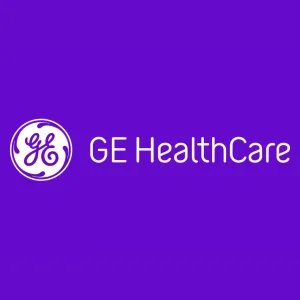- Integrating and analyzing data over time and across various data sources, CardioVisio for Atrial Fibrillation helps visualize the history of the patient’s heart and provides guideline-directed insights to healthcare providers.
GE HealthCare announces the launch of CardioVisio for Atrial Fibrillation (AFib), a digital tool designed to assist clinicians in visualizing longitudinal data relevant for disease progression from multiple data sources, and driving evidence based clinical decision support directed by up-to-date AFib guidelines. The new technology will be showcased at the European Society of Cardiology (ESC) Congress 2023, in Amsterdam, Netherlands, August 25-28.
Cardiovascular diseases are the leading cause of death globally, with more than 60% of these deaths being preventable and premature.[i],[ii] Within the umbrella of cardiovascular disease, AFib is the most common arrhythmia diagnosed in clinical practice, affecting millions of people worldwide - projections indicate that the prevalence of AFib could reach 15.9 million people in the United States by 2050 and 17.9 million in Europe by 2060.[iii] Additionally, AFib is often misdiagnosed or not treated appropriately, with up to 30 percent of cases missed in routine clinical practice.[iv] It is critical that progress is made in driving precision care for the management of patients suffering from AFib as people living with the condition are five times more likely to experience a stroke[v] and AFib is a common cause of hospitalization.[vi]
“Existing diagnosis and treatment care models for AFib have been shown to be complex, time consuming and disconnected with disparate guidelines and poor guideline adherence,” said Eigil Samset, PhD, general manager, Cardiology Solutions, GE HealthCare. “With CardioVisio for AFib, we’re providing cardiologists with a powerful tool to tell the story of the heart, including previous diagnoses, prescribed medications, interventions, and comorbidities.”
CardioVisio for AFib assists the clinician in visualizing longitudinal data relevant for disease progression from multiple data sources, saving time and aiding clinical decision making by offering guideline-directed therapy recommendations. Each automated step includes explainability and traceability, allowing the healthcare provider to audit and edit the process and output with the goal of better meeting the needs of each unique AFib patient.
“Our busy clinicians face a multitude of disparate patient data generated from years of diagnostic exams, medications, medical appointments, and interventions,” said Dr. Kenneth Civello, Electrophysiologist and Cardiologist with Louisiana Cardiology Associates at Our Lady of the Lake Physician Group[vii]. “CardioVisio for AFib incorporates algorithms that intake available relevant data as triggers for industry-published guidelines which can help ease the burden of data overload on our staff and will enable us as healthcare providers to provide timelier, personalized and evidence-based care to our patients.”
CardioVisio for Atrial Fibrillation is now commercially available in the U.S. The company plans to expand availability in the coming months incorporating additional regional guidelines.
To learn more about GE HealthCare and it’s suite of Cardiology solutions, please visit https://www.gehealthcare.com/specialties/cardiology or visit the GE HealthCare’s Booth #H500 at the ESC Congress 2023.
This product may not be available in your country or region. Please contact your GE HealthCare representative for more information.
CardioVisio for AFib is not yet available in the EU market until compliance with EU 2017/745.
Source: GE Healthcare
References
[i]World Health Organization (WHO) estimated 17.9 million people died from cardiovascular diseases in 2019. https://www.who.int/news-room/fact-sheets/detail/cardiovascular-diseases-(cvds)
[ii]https://www.jacc.org/doi/10.1016/j.jacc.2022.11.005#:~:text=In%202021%2C%201.17%20million%20(95,383%2D461%20per%20100%2C000).
[iii] Vinter N, Huang Q, Fenger-Grøn M, Frost L, Benjamin EJ, Trinquart L. Trends in excess mortality associated with atrial fibrillation over 45 years (Framingham Heart Study): community based cohort study. BMJ. 2020 Aug 11;370:m2724. doi: 10.1136/bmj.m2724. PMID: 32784208; PMCID: PMC7418071.
[iv] January CT, et al. 2019 AHA/ACC/HRS Focused Update of the 2014 AHA/ACC/HRS Guideline for the Management of Patients With Atrial Fibrillation. Circulation. 2019; 140: e125–e151. https://www.ahajournals.org/doi/full/10.1161/CIR.0000000000000665
[v] https://www.ncbi.nlm.nih.gov/pmc/articles/PMC6515763/
[vi] Gallagher et al, Heart 2019;105:1358-1363.
[vii] Paid Consultant for GE HealthCare, but not paid for this testimonial: Dr. Civello is a paid consultant for GE HealthCare. The statements by Dr. Civello described here are based on his own opinions and on results that were achieved in his unique setting. Since there is no “typical” hospital and many variables exist, i.e. hospital size, case mix, etc. there can be no guarantee that other customers will achieve the same results.








